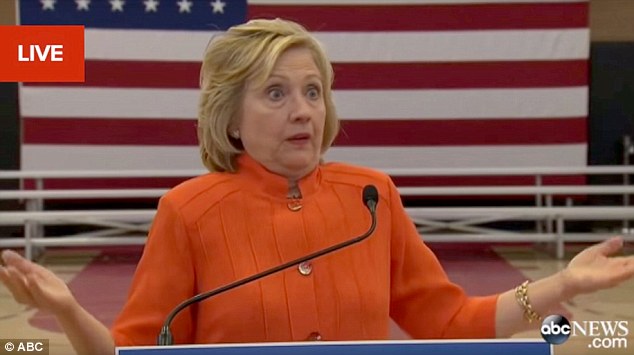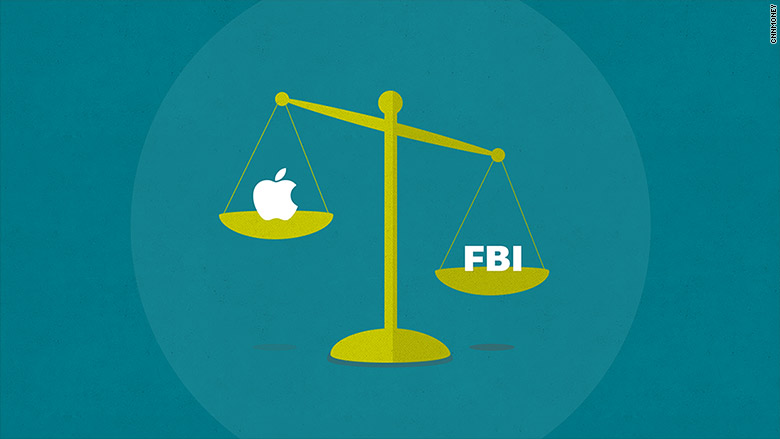The case for Trump: Why Donald bests Hillary on key tech policies

Solely based on media coverage, you'd think that all of Silicon Valley and the tech world at large was undoubtedly behind Clinton in this critical election. But as has been reported in muted fashion by a few outlets, there is such a thing as the "silent majority" which is going to surprise many this election. I'm confident that polls are having a hard time capturing the factor that quantifies this part of the electorate which isn't being vocal about its Election Day preferences, but will deliver a decisive blow come Tues Nov 8.
Those in the tech industry publicly supporting Trump are far and few in between. And it's not entirely surprising. With the amount of undue heat that Peter Thiel, a gay conservative who co-founded PayPal, is receiving, it's not shocking to see many staying mum about their preferences. But with such an important election at stake, and with candidates who I see as having vastly different consequences for America, sitting idle and staying silent is perhaps a worse reality than risking standing on the losing side of Election 2016 history.
I'm a small IT business owner and a decade-long IT pro, and I'm standing with Trump on the issues closest to my heart: technology issues and their related policies. After spending over a year following this election closely, here's why Trump has it right on the critical tech issues I care most about. And while I'm admittedly not an authority on topics such as military policy or global politics, my entrenchment in the IT industry gives me a nuanced perspective on tech that mass media at large is inherently foreign to.
Hillary's Email Server: Gross IT Negligence of National Security
Perhaps the single most important tech issue that has been out in front this entire election cycle is Hillary's blatant, careless usage of a private email server. There are numerous reasons why IT pros should take Hillary to task for how -- as the nation's top Diplomat -- she blatantly dropped the ball regarding classified intelligence handling.
Not only is Hillary's situation a disgraceful obstruction of justice, as there are countless others in lesser positions who have been punished tenfold for doing far, far less with confidential data.
But to me, as someone who takes IT security very seriously for my managed IT clients, everything about Hillary's situation stinks to high heaven. From the fact that she hired (brilliant!) tech experts to stage her email server to be housed in a bathroom closet for a time. Down to how Hillary's team ordered the company to wipe away critical evidence using BleachBit, and then to top it off, we learn that key IT pros involved in creating this mess have been given blanket immunity and made a mockery of Congress when brought in for questioning this year by hiding behind the fifth amendment.
And then we find out that this IT expert was caught sneaking around Reddit looking for advice on how to strip out emails related to a "VERY VIP" kind of person (read: Hillary Clinton).

In August 2015, Hillary Clinton was asked by a reporter if her server was wiped clean to avoid discovery by investigators. In response, she laughably responded by saying, "What? With a cloth or something?" Her usage of a private email server has been a consistent marker of dishonesty and negligence of IT policy and national security alike. (Image Source: DailyMail.co.uk)
At every turn, Hillary and her extended entourage of aides and experts have snubbed the law and flaunted getting away with it. And while Hillary believes she is breathing easier due to FBI Director Comey brushing up excusing her email follies, lest we forget that her namesake Clinton Foundation is very much still under the investigative radar for 'pay to play' allegations. As fast as Hillary puts out one fire, another one billows smoke just around the other corner.
From my perspective, if Hillary could not properly handle crucial decision making on critical IT systems handling our nation's secrets, how would she possibly fare better with such decisions as the leader of the free world? History speaks numbers, and Hillary's track record with confidential IT platforms is pathetic at best.
Compounded with how many decades Hillary has been in politics, not to mention already having spent two tenures residing at the White House, it's utterly unconscionable how she can stand behind such careless, negligent behavior.
H-1B Visa Reform: Bringing IT Jobs Back to America
As a Park Ridge, IL (USA) based tech company owner, I'm extremely proud of the fact that I can give jobs to deserving local Americans. If you had to ask me, I would rather close up my managed IT services business than stoop down to the levels of Disney, for example, which laid off most of its USA based tech staff in place of foreign (read: cheap) laborers. Yet the company had no shame -- it forced the staff it was booting into unemployment to stay on hand to train their H-1B toting replacements before being shown the door.
But Disney isn't the first company to be tempted into ditching quality American labor in place of foreign workers who are able and willing to work for pennies on the dollar. One of H-1B's biggest proponents, the mighty Mark Zuckerberg, uses the false narrative of being hungry for more skilled labor to cover up his real motives.
As an employer, yes, keeping my payroll full of American-based labor is expensive by every token. I probably could cut labor costs by 1/3 to 1/2 by outsourcing my key positions to H-1B visa holders, or better yet -- hiring talent that is based solely overseas. But being a small business owner for some time now has given me considerable satisfaction in the notion that we can make a profit all the while employing local, deserving, and extremely motivated Americans.
I find companies like Disney and Facebook to be on the wrong side of history. And Donald Trump is the one making it very clear that companies taking advantage of foreign labor at the expense of qualified deserving Americans will pay the price. Not only should H-1B caps be lowered, but policies should be enacted that force companies abusing this loophole to pay equitable salaries that are comparable to what they would have paid for hiring local talent -- thereby eliminating any financial benefits from this scourge on the IT industry.
Tech Corporations and Privacy: Why Common Sense Supersedes Ideological Purity
I've long been a believer that strong device and network security is an important facet to a sound IT infrastructure we can depend on. But putting security on a pedestal based solely around technical, ideological purity is foolish -- and downright eventual suicide. It's why when Apple was getting the praises of the sing-along IT media for standing up to the FBI this past February in the San Bernardino case, I stood against the grain and explained why they were downright wrong from both a technical and policy perspective.
Not surprisingly, Donald Trump saw matters in a similar light. This was a clear cut case of Apple having the capability to disable the mechanisms enforcing forced wipe after incorrect pincode entry on its iPhone 5c device, and nothing to do about handing over much-discussed "master keys" to the encryption backbone for its flagship smartphone line.
But while I previously outlined the raw technical reasoning for why Apple was clearly in the wrong (based on findings by a security expert), the crux of this matter when it comes to the election surrounds how our national security policy should be shaped in light of these increasingly common situations.

When lives are at stake, should corporations be allowed to stand behind false veils of privacy to uphold their public image? If long term damage to the tenets of encryption and device security are not at risk, then I clearly believe these firms should be held accountable to the public. When it came to the famous FBI-Apple case from Feb 2016, Donald Trump and I saw eye to eye on Apple's shameless behavior. (Image Source: CNN)
Should corporations, in the face of grave public danger and desirable national security interests, be forced to comply with court orders that are feasible and more importantly, reasonable? Yes and yes. In the San Bernardino case, Apple would have sacrificed zero in terms of long term device security by reverse engineering the former terrorist's device. But they proved quite clearly that they had an ego to uphold and this sadly shaped the PR of their decision making.
Trump publicly blasted Apple for its actions in its FBI battle earlier this year, as I did, and I think he would take a similar nuanced position in future cases of overarching public safety.
The Long Term Stability of DNS: Why ICANN Control Belongs in America's Hands
Since the inception of the Internet as we know it, America has held the reigns of the very core facets that allow us to .com to this and .org to that. The topmost reigns of the Domain Name System (DNS), known as Top Level Domains (TLDs), have been under the helm of ICANN which has been inherently controlled by America. This has been the status quo for over two decades and has worked as intended, without flaw, and without interference.
As the de-facto protector of the free world and its many tenets -- yes, including DNS and a free internet -- the USA has proven its stewardship as the controlling interest over ICANN to be beneficial for all, not just America.
But control of ICANN is not merely a game of showmanship. There's a lot at stake on the world stage when it comes to the one platform that upholds the interlinks among the entire global economy, free speech, and everything else in between. Now since ICANN has been transferred out of the hands of the USA and into the grasp of a multinational global entity, the future of the open internet could be chipped away by the intentions of nations which would use a mask of "global interest" to impose their own censorship, or worse.
Years back I penned about the dangers of allowing such abhorrent violators of internet freedom to have seats at the global WWW policy table. With ICANN now into uncharted waters, it's easy to see why these fears may bear resemblance to unfolding real world events at some point.
Trump stands with me on this opinion and has opposed the handover of ICANN control since the beginning. It will undoubtedly be near impossible to reverse this handover, but Trump's dedication in keeping America's adherence to freedom and liberty when it comes to internet affairs is a key indicator of how he would rule on future related issues. And this is a big reason why his ticket is easier to stand behind over that of Hillary Clinton.
Trump Isn't Perfect, But Clinton Cannot be Trusted
This election has proven to be a whirlwind in many ways. However, there's one aspect which isn't that radical from previous elections: there is no such thing as the perfect candidate. You'll never be able to say that the leading candidates check off every box on your mental tally list of policy stances.
But this very notion is the one which has pegged my support for Trump. Yes, he's said things which are indefensible. Yes, he isn't the most concrete, bona-fide conservative of the field which was offered. But the American public voted him through the primaries by large margins, and he ended up as the GOP nominee.
I've compared, contrasted, and added up the positions which matter most in my eyes, and Trump is the one which stands tall above Clinton on numerous policies -- most importantly, tech policy which is near and dear to me both personally and professionally.
Supporting Trump as an IT pro this election cycle is seemingly a minority viewpoint in the unfortunately homogenous tech industry, but that's never bothered me in the past.
Because it may very well be the silent majority which vindicates Trump in the end.
Photo Credit: lev radin/Shutterstock
 Derrick Wlodarz is an IT Specialist who owns Park Ridge, IL (USA) based technology consulting & service company FireLogic, with over eight+ years of IT experience in the private and public sectors. He holds numerous technical credentials from Microsoft, Google, and CompTIA and specializes in consulting customers on growing hot technologies such as Office 365, Google Apps, cloud-hosted VoIP, among others. Derrick is an active member of CompTIA's Subject Matter Expert Technical Advisory Council that shapes the future of CompTIA exams across the world. You can reach him at derrick at wlodarz dot net.
Derrick Wlodarz is an IT Specialist who owns Park Ridge, IL (USA) based technology consulting & service company FireLogic, with over eight+ years of IT experience in the private and public sectors. He holds numerous technical credentials from Microsoft, Google, and CompTIA and specializes in consulting customers on growing hot technologies such as Office 365, Google Apps, cloud-hosted VoIP, among others. Derrick is an active member of CompTIA's Subject Matter Expert Technical Advisory Council that shapes the future of CompTIA exams across the world. You can reach him at derrick at wlodarz dot net.
